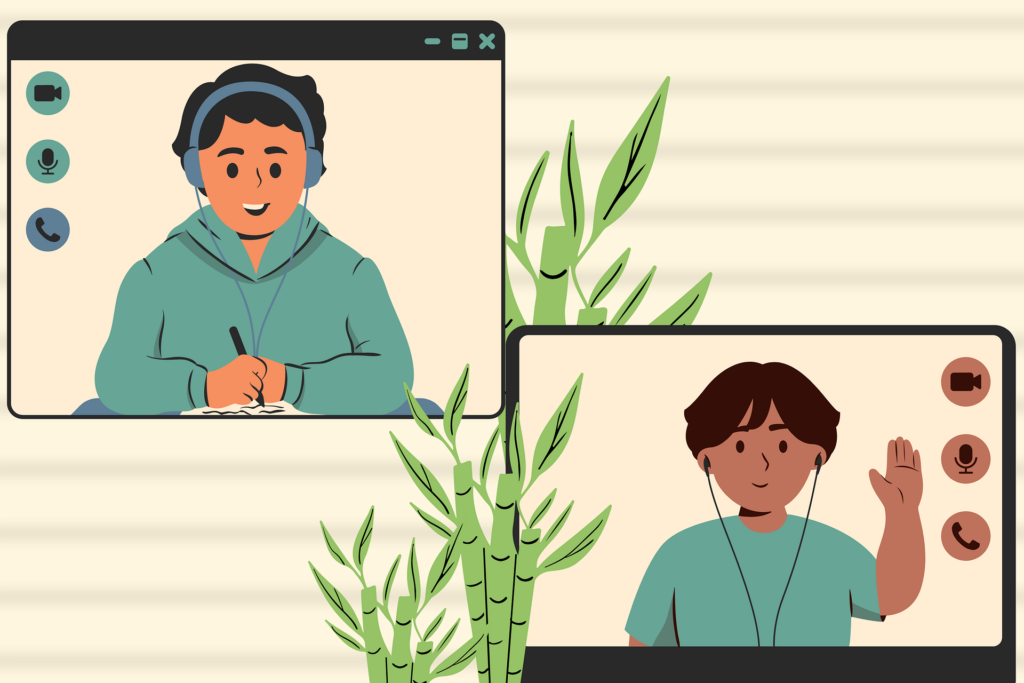“Online Courses are a Failure” and Other Ableist Mythologies in Academia

Written by Holly Eva Allen. PFF Fellow. Student in English. School of Arts & Humanities.
Online courses don’t help students learn. Zoom is a tool whose time has passed. Students don’t care about their education if it’s virtual.
These statements have become rather commonplace recently. With many schools at all levels returning to in-person teaching, criticisms of what seems to have been a mere stint in online education are rampant. In fact, these statements are all the more common when looking to major news sources. Wall Street Journal, for example, released an article under a year ago titled “The Results Are In for Remote Learning: It Didn’t Work”. In said article, the writers bring up a plethora of appropriate concerns, from the fact that too many students lack access to technological devices to the general lack of preparedness to go virtual in academia (Hobbs and Hawkins, 2020). However, this article, like many others, fails to acknowledge the concerns or needs of disabled students and educators in regard to online teaching.
It isn’t surprising that major news sources are blanket naysaying online learning without considering disabled people. The general approach to educating the disabled, chronically ill, and neurodivergent student has typically been to ignore them or else expect them to apply and present themselves exactly as an able-bodied, neurotypical student might. As Thomas Hehir of the Harvard Graduate School of Education notes, “From an ableist perspective, the devaluation of disability results in societal attitudes that uncritically assert that it is better for a child to walk than roll, speak than sign, read print than read Braille, spell independently than use a spell-check, and hang out with nondisabled kids as opposed to other disabled kids, etc. In short, in the eyes of many educators and society, it is preferable for disabled students to do things in the same manner as nondisabled kids.” (Hehir 3). In this vein, while some students and educators may dislike online learning, it is important to consider whether all groups are being asked to divulge their thoughts on the matter. While one student may find that in-person, traditional learning is engaging for them, one who combats a chronic illness might find that online learning is more accessible for them as it allows them to remain more comfortable. Though one professor might argue that teaching in person allows them to discuss things with their students face-to-face, which they prefer, a disabled educator may find that omitting the need to commute to campus saves them a great deal of time and discomfort. However, it seems that major news sources aren’t asking these questions of the disabled community. So, whether or not this may be the case, most would never know.
Of course, the very immediate switch to online classes itself is an indication of what academia truly holds dear. That is to say that disabled, chronically ill, and neurodivergent students and faculty would have benefitted from online learning long before the pandemic. However, the lack of ample online courses pre-pandemic communicates the fact that academic institutions simply do not value these learners or educators. It took a worldwide pandemic that threatened the health and wellbeing of the majority, of the able-bodied many, to turn towards online learning.
This is antithetical to inclusivity. It is antithetical to UDL, as well as the pedagogy of care. In essence, those who care for their students will care for their disabled students, their chronically ill students, their students who might otherwise benefit from online learning. As aptly put in the recently released text Academic Ableism: Disability and Higher Education, “If the teacher wants to, above all, treat students ethically and respectfully, she must consider the spaces where she teaches in terms of disciplinary attitudes, but also in terms of… bits that exclude bodies… We need to start with exclusion.” (Dolmage 44). Whose voices are we excluding when we ask whether online learning has been a success or a failure? And who are we leaving behind when we rush, full force, back into in-person learning without a glance back?
- Dolmage, Jay T. Academic Ableism: Disability and Higher Education. University of Michigan Press, 2017.
- Hehir, Thomas. “Eliminating Ableism in Education.” Harvard Educational Review, vol. 72, no. 1, 2002, pp. 1–33., https://doi.org/10.17763/haer.72.1.03866528702g2105.
- Hobbs, Tawnell D., and Lee Hawkins. “The Results Are in for Remote Learning: It Didn’t Work.” The Wall Street Journal, Dow Jones Company, 5 June 2020, https://www.wsj.com/articles/schools-coronavirus-remote-learning-lockdown-tech-11591375078.
Share